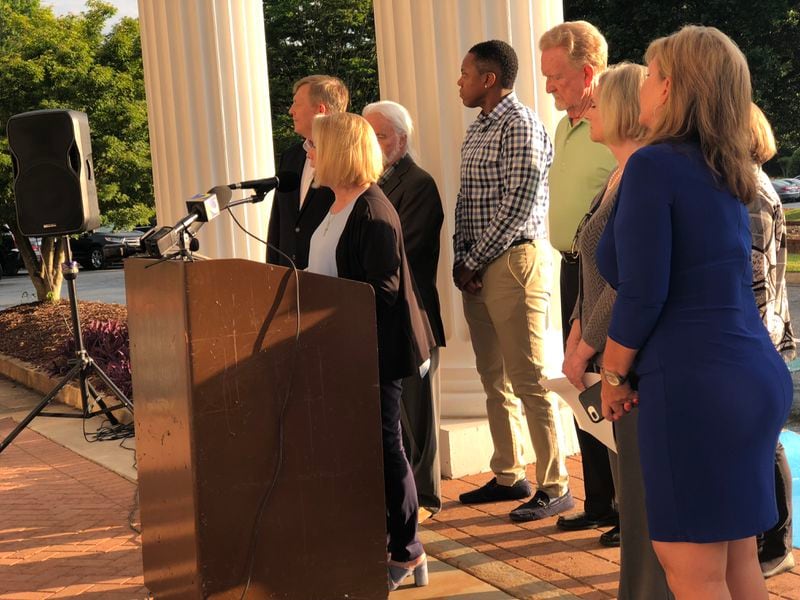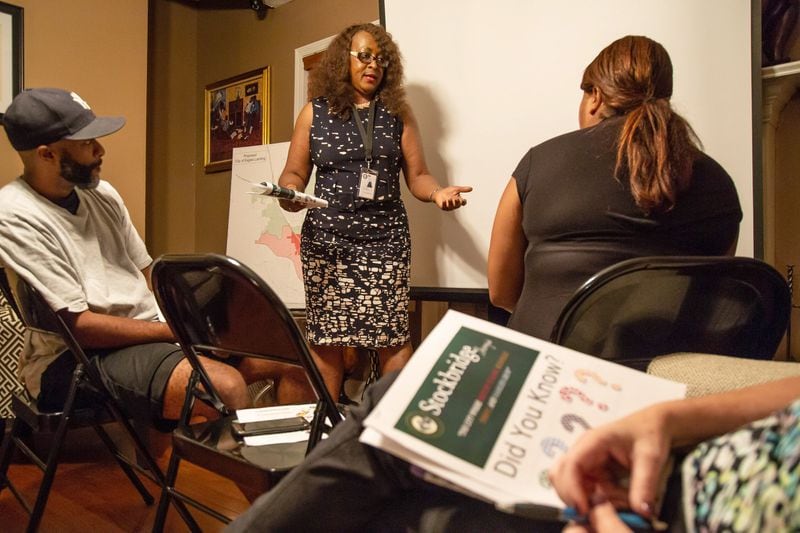The Georgia Supreme Court on Monday ruled against the city of Stockbridge's request to halt the November referendum that will allow voters to decide whether to make Eagle's Landing a city.
In a 7-2 ruling, the state’s highest court denied the motion to “expedite appeal, or, in the alternative, to stay referendum election.”
It's the latest blow to Henry County's largest city, which says it will lose half of its population as well as half of its revenue if Eagle's Landing — high-end neighborhoods in Stockbridge's southern end with a gated golf community as its centerpiece — becomes the newest town in the south metro Atlanta.
Eagle’s Landing supporters praised Monday’s ruling, saying it puts the power in the voters’ hands.
“We are very pleased the court has decided to allow the election to go forward and allow the citizens to decide whether they want the city of Eagle’s Landing or not,” said Vikki Consiglio, an architect of the cityhood movement who plans to run for mayor of Eagle’s Landing.
Chris Anulewicz, an attorney for Stockbridge, noted that the high court did not reject their case entirely. It just declined to halt the vote, he said. The court still has to rule on whether the referendum is worded in a way that doesn’t violate state law. It’s unclear when that decision will be made.
“A divided Georgia Supreme Court declined to stay the November 6, 2018 referendum, but the merits of the Stockbridge’s challenge are still under consideration by the Supreme Court and we await that decision,” he said in a statement.
It’s also one of three lawsuits Stockbridge has filed to put the brakes on cityhood, including federal litigation before the U.S. District Court in Atlanta over municipal bond payments that Clayton State University Professor Joshua Meddaugh thinks could be the most consequential.
That suit pairs Stockbridge and the municipal bonding arm of banking giant Capital One in an argument that the referendum does not provide a mechanism for Eagle's Landing, if it becomes a city, to pay back debt Stockbridge owes Capital One on the tax base that will be inherited by the new town.
“What’s really the argument here is you are losing half of your tax base and your corporate tax base to a new city,” he said. “That financial burden is going to fall on the residents of Stockbridge. ”
The secession battle is also being closely watched across metro Atlanta. If successful, it will mark the first time the state has allowed a city to be formed by by taking land from an already incorporated community, instead of the usual route of cobbling together unincorporated parts of a county. Experts have suggested that wealthier communities such as Buckhead could use Eagle’s Landing as a blueprint to break away from their home communities.
“This is a very important vote that will have a trickle effect in the rest of Georgia,” Meddaugh said. “Buckhead is itching to leave Atlanta. They need this to happen.”
Monday's ruling by the state Supreme Court came after Stockbridge appealed a Henry County judge's July decision that the referendum, which in addition to allowing a cityhood vote asks residents to consider de-annexing Stockbridge to make the new town, was constitutional because it did not violate the state's two question prohibition.
The city also has filed a federal lawsuit challenging the constitutionality of the vote on the grounds that it violates the Voting Rights Act of 1965 and the equal protection clause of the 14th Amendment. A ruling is pending on that lawsuit and the one filed with Capital One.
About the Author








